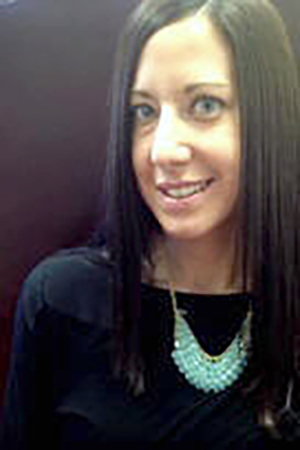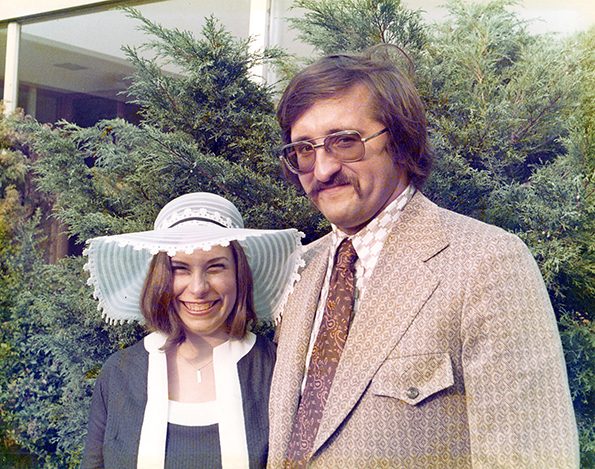 |
 |
| Two women in a room: Niagara County Board of Elections Commissioners: Lora Allen (Democrat) and Jennifer Fronczak (Republican) meet in secret and make decisions on the democratic process. |
 |
Attorney Peter Reese with his lovely wife Ellen.
Reese may be representing Ellen and Reporter Editor Frank Parlato and Local 91 Union leader Dick Palladino in a lawsuit demanding the Niagara County Board of Elections conduct their meetings in accordance with the open meetings laws instead of in secret.
|
|
|
|
|
|
Three separate demands for compliance with the New York State Open Meetings Law were delivered to the Niagara County Board of Elections on Monday.
These demands came from the free press, represented by the Niagara Falls Reporter, a large local union (Laborers' Local #91) and an individual with little direct connection to Niagara County.
In three similarly worded letters, this reform minded trio detailed their belief that The Board of Elections is legally required to comply with the public notice and openness requirements of New York law.
Reporter Chairman & Editor in Chief, Frank Parlato stated "It is time for the Niagara County Board of Elections to meet openly and make their decisions on all issues of democracy in this county transparent like everywhere else in the free world.”
Laborers' Local #91 Business Manager Dick Palladino remarked, "We believe in openness and accountability in government. Local 91 is always looking for ways to make Niagara County a better community, and compliance with the Open Meetings Law by all public bodies will make our area better place to live."
The third individual, Ellen Reese (nee Mendelsohn) although a resident of the City of Buffalo is an intensely litigious person, driven by a seemingly unquenchable thirst for compliance with state and federal open government mandates.
The letters were hand delivered to the county Board of Elections by prominent local attorney Peter Reese, and they threaten legal action unless county Elections Commissioners Lora Allen and Jennifer Fronczak begin holding their deliberative sessions in accordance with the state Open Meetings Law.
“The recent revelation, in your sworn Supreme Court testimony, that you are flagrantly violating the New York Open Meetings Law leaves us shocked, stunned and saddened,” the letters state. “Transparency and accountability in government are a fundamental basis for any democratic society.”
The impetus for this action was the Commissioners sworn testimony - that they ignored the Open Meetings Law and always meet in secret – during litigation by City Court Judge candidate David Boniello to qualify his Republican Party petitions.
This secret meeting and the maze of election rules may have disenfranchised voters in the critical judicial primary race this September.
In the Boniello case, specific objections were received by the Board on Monday July 20th.
The very next day the Board disqualified his petition in a secret meeting and mailed him a copy of the specific objections.
On Wednesday, the Board mailed Boniello notice that he had been disqualified.
On Thursday he received the specific objections.
On Friday, unaware that he had already been secretly disqualified, he called the Board to find out when the meeting on his petition was to be held. According to his testimony, he was told the meeting would take place in the next week.
On Saturday he received the notice that he had been thrown off the ballot.
On the weekend, he had to find an election law attorney who only had one day to file his suit to get back on the ballot.
This suit had to be filed in the absence of any information as to why his petition was deemed invalid during the secret Board meeting on Tuesday July 21. This, of course, was nearly impossible.
By arcane New York State laws parties thrown off the ballot have only three business days to bring suit and serve all parties.
Under a strict reading of the Election Law, Boniello's right to go to court to challenge the Board ruling may have expired on Friday, July 24, before he was even notified that he was ruled off the ballot!
This result was caused by the failure of the Niagara County Board of Election to comply with the seven day media, three day public posting and internet notification requirements. It was made worse by the failure of the Board to adopt reasonable rules for handling objections to petitions such as those used in Erie County.
“The Board of Elections is unquestionably a ‘Public body’ under the Open Meeting Law and required to conduct its affairs in and open and transparent manner,” Reese said.
The Open Meetings Law is simple.
“It is essential to the maintenance of a democratic society that the public business be performed in an open and public manner and that the citizens of this state be fully aware of and able to observe the performance of public officials and attend and listen to the deliberations and decisions that go into the making of public policy. The people must be able to remain informed if they are to retain control over those who are their public servants. It is the only climate under which the commonweal will prosper and enable the governmental process to operate for the benefit of those who created it,” it states.
The law states that all meetings must be open to the public, and advertised at least 72 hours ahead of time. It defines “public body” as any entity of two or more members performing a governmental function.
Two weeks ago, Reese was not allowed by Allen to use a still camera at the Board of Elections office to photograph some nominating petitions on file there.
This time, his lovely wife, Parlato and Paladino are not asking.
“We hereby demand that the Niagara County Board of Elections immediately comply with the mandates of the Open Meetings Law. If you have not provided evidence that you have done so in the next ten days, we will initiate a legal action to compel you to do so,” the letter concludes.
Complicating matters is that Commissioner Allen’s husband, Rev Ray Allen, was recently appointed by Niagara Falls Mayor Paul Dyster to the $50,000 a year position as the city’s police liaison officer, a patronage position created by the mayor.
Dyster’s nominating petitions were also challenged and the commissioners met in secret and ruled – unlike Boniello – that his petitions were valid.
Making matters worse is that the Dyster-controlled City Democratic Committee – in a highly partisan and at times contentious meeting - took pains to deny Boniello the city Democratic endorsement in favor of Danielle Restaino, the daughter of Dyster-ally Robert Restaino and incumbent City Court Judge Mark Violante.
Was Allen, the Democratic commissioner, influenced by her husband’s appointment as she pored over the petitions of either Boniello or Dyster?
It’s hard to say, because she and Fronczak conducted their deliberations in private.
A court case involving the county Board of Elections, patronage hiring by the Dyster administration and the seedy underbelly of incestuous Democratic Party politics?
A case where everyone involved will be testifying under oath and under pain of perjury?
What could go wrong?
Although the two secretive election commissioners were able to "invalidate" Boniello's Republican nominating petition and throw him off the Republican line of the ballot, they were unable to do so with the Democratic petitions of Boniello.
A popular attorney and prosecutor, Boniello had so many signatures on his Democratic petitions that the partisans could not possible hope to succeed and did not try.
Boniello will appear on the Democratic ballot.



